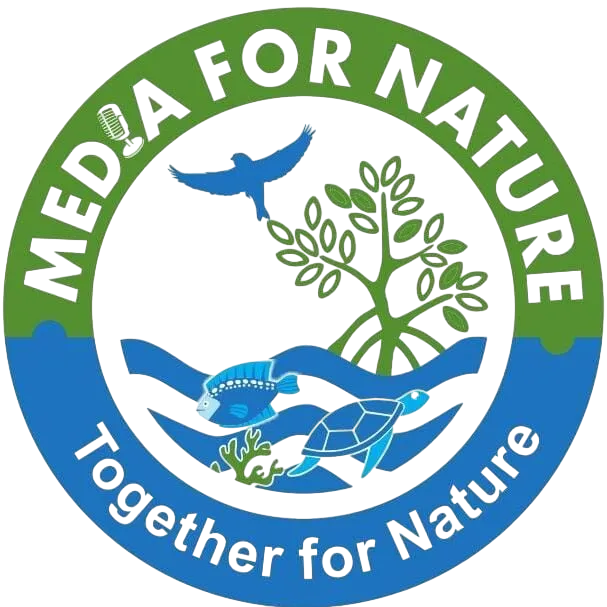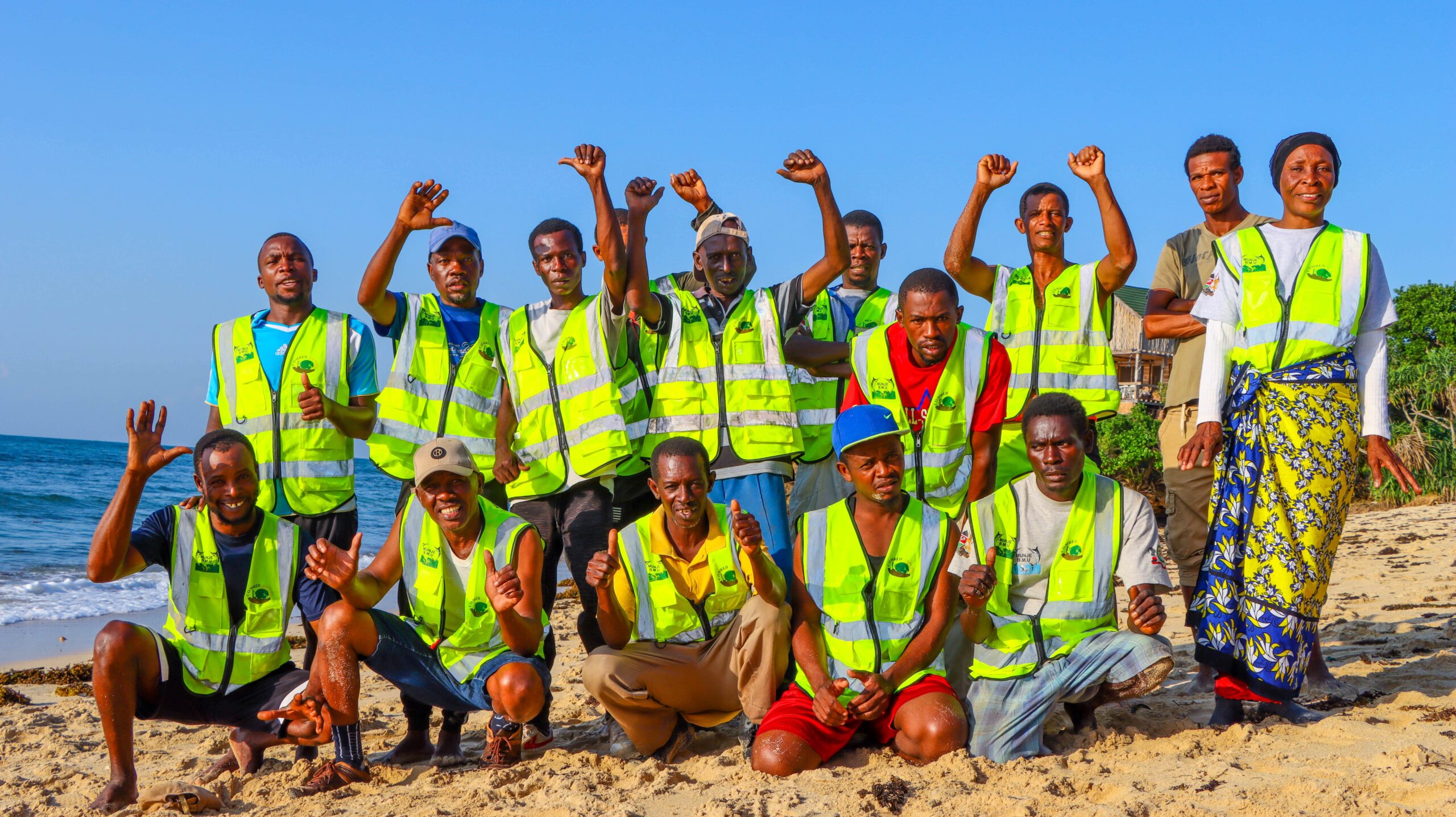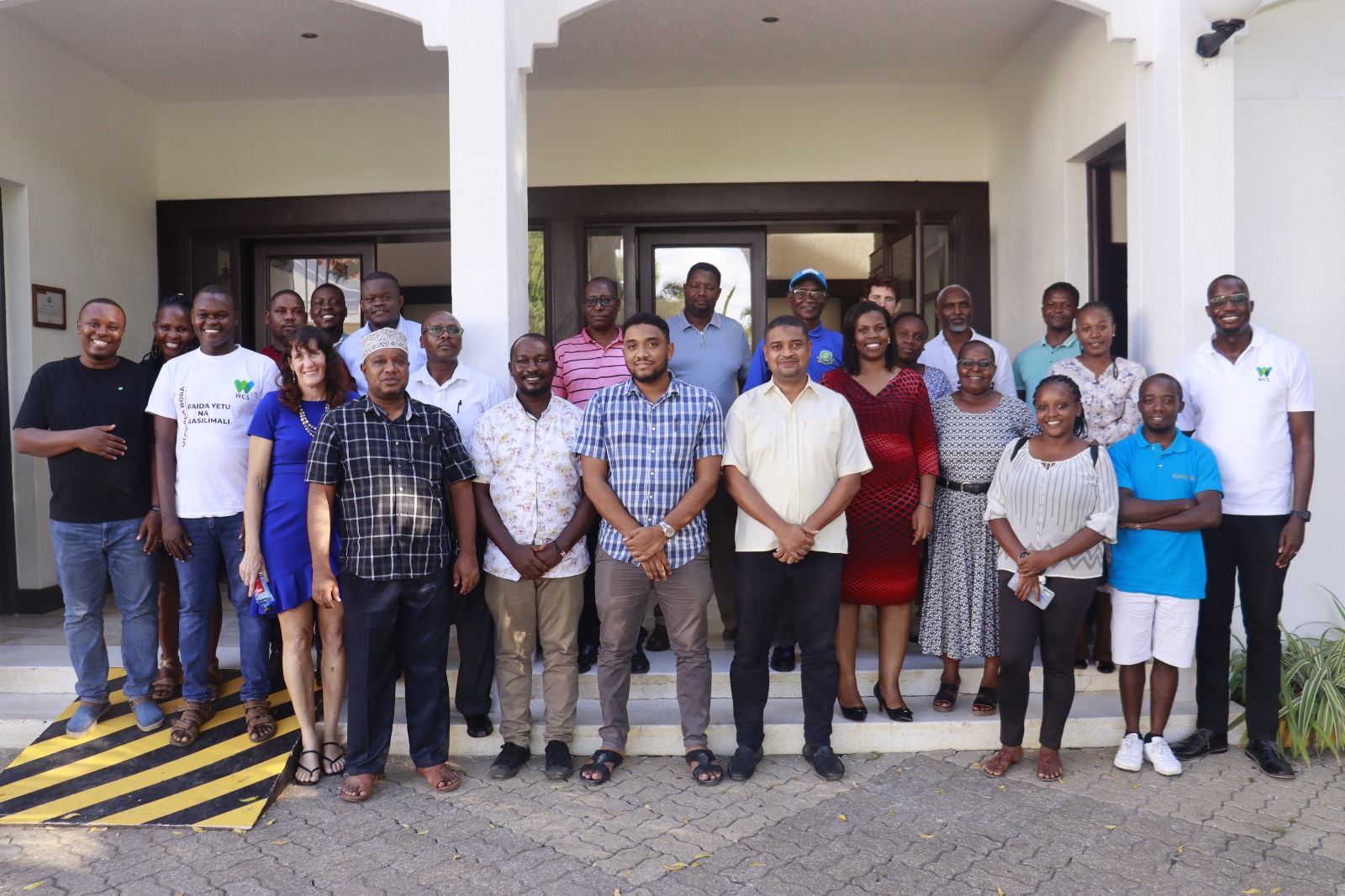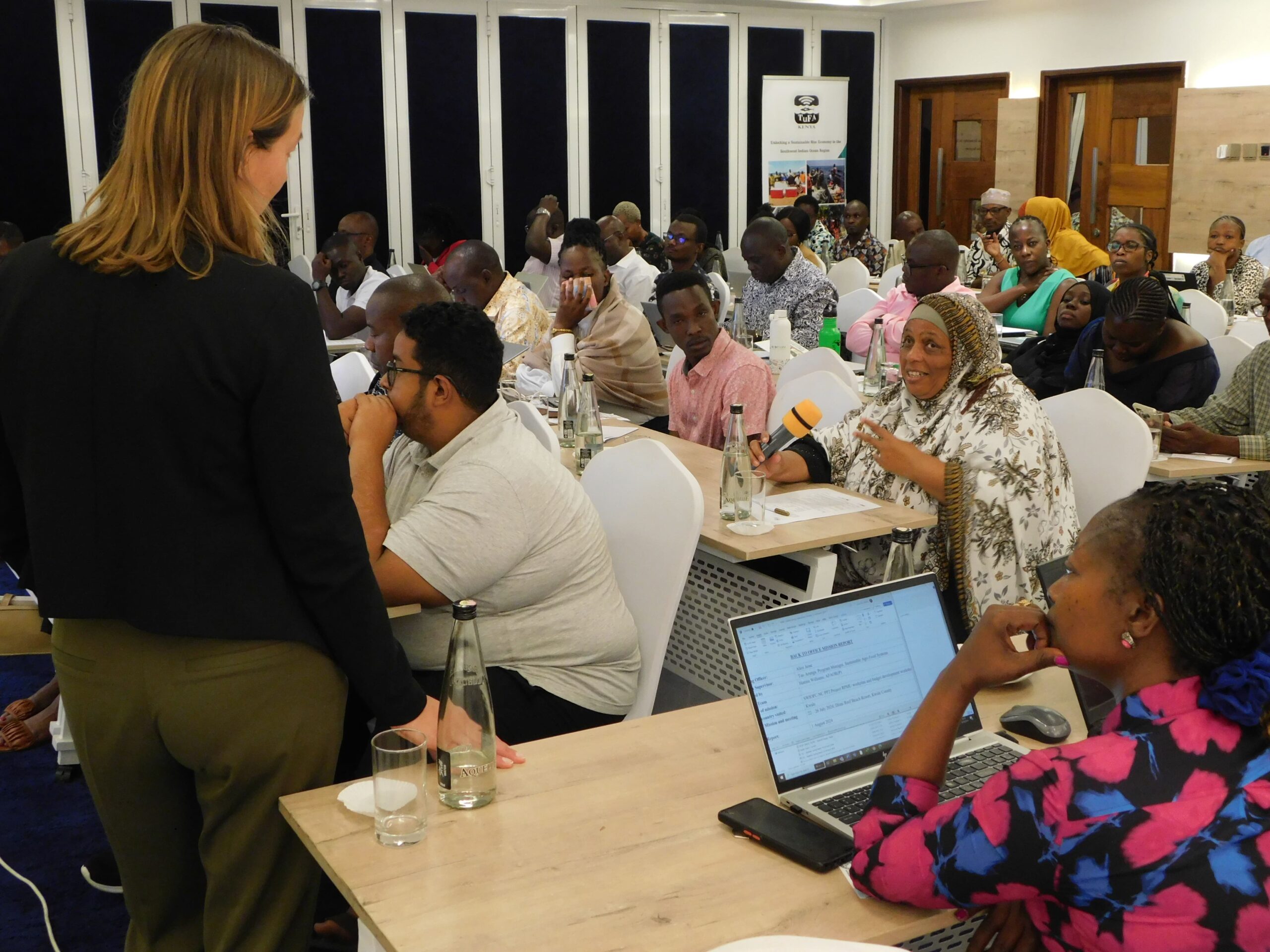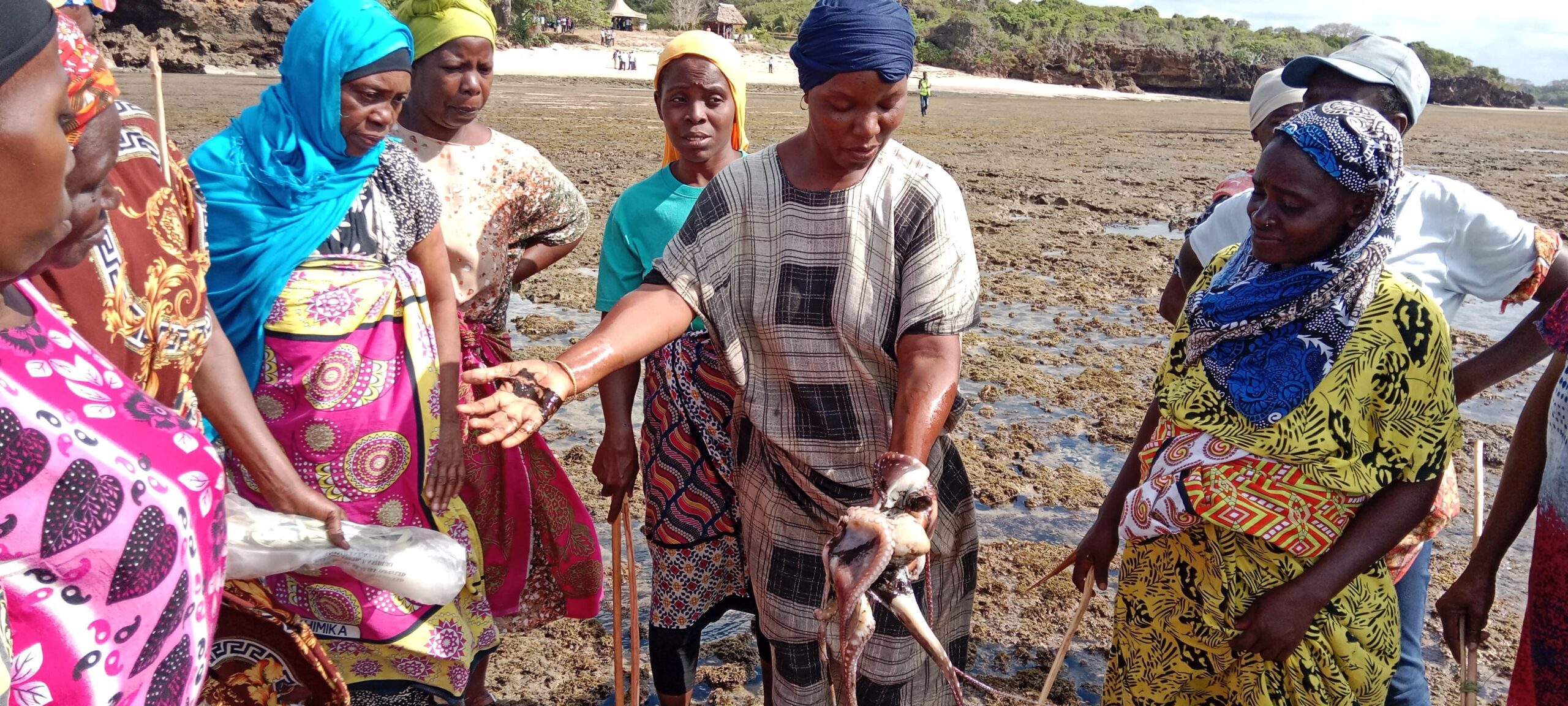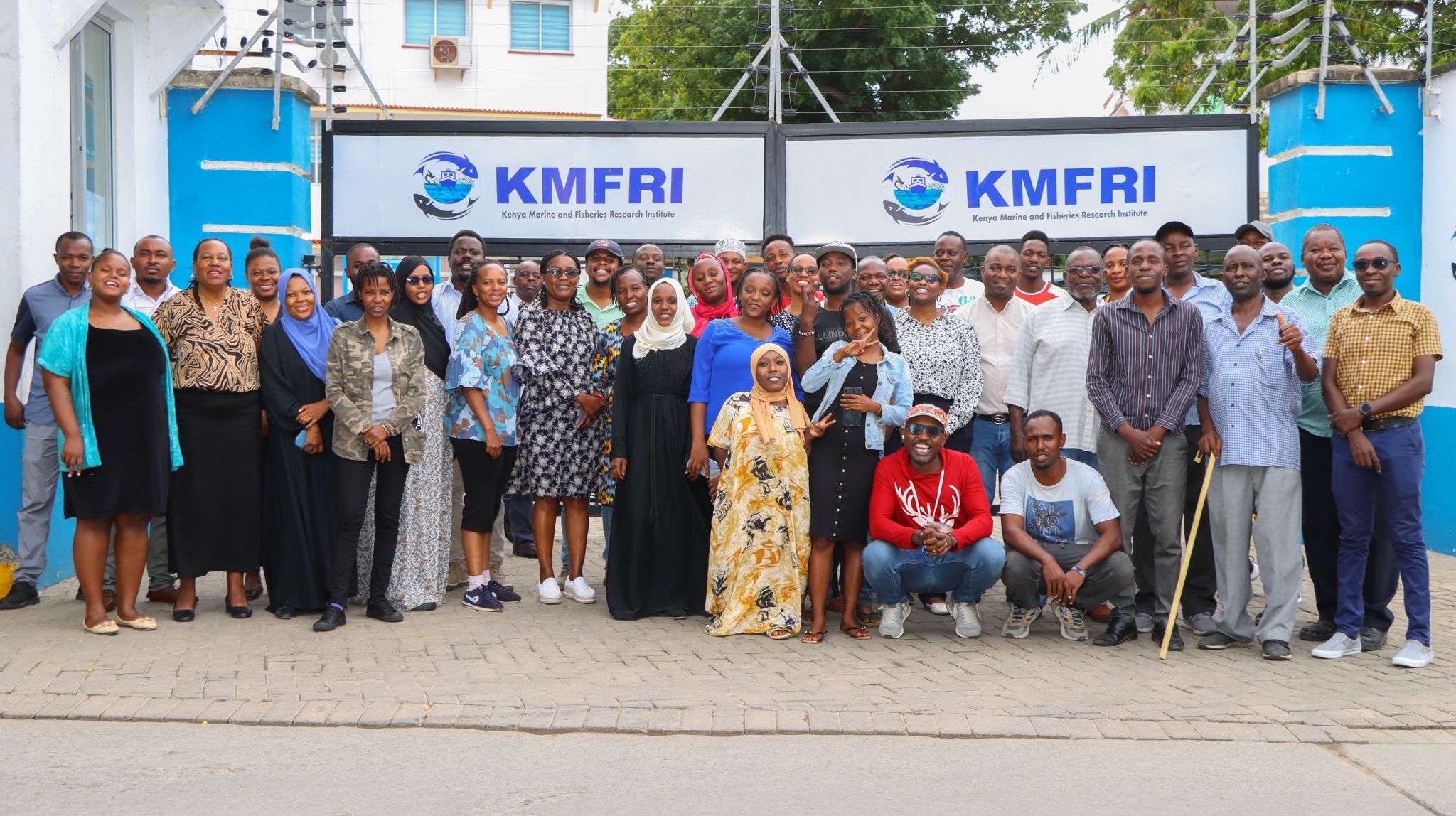Munje rangers. Photo by COMRED.
On a bright Wednesday morning at Munje Beach, the atmosphere buzzed with excitement as members of the Munje Beach Management Unit (BMU) scurried along the shoreline. The day marked not just the eagerly anticipated harvest of octopus from their protected area, but also the launch of a new speedboat—a crucial tool in their efforts to safeguard the octopus closure.
Munje’s octopus closure, locally known as “Tengefu,” is a designated marine area set aside to fulfill specific goals such as protecting fish breeding grounds, promoting tourism, and boosting the local fishing economy.
However, the journey to establishing this closure has been far from easy. Since the early 2000s, efforts to educate the local community about the project have been ongoing. Little did they know, this closure would bring a new wave of employment opportunities for the youth of Munje.
In Munje, most residents rely on fishing as their primary source of income. However, the COVID-19 pandemic, which hit hard globally, severely disrupted livelihoods, and the fishing community was not spared.
Bakari Juma, a 30-year-old father of four, is a fisherman originally from Munje in Kwale County. He had been conducting his fishing activities in neighboring Kilifi County, but the pandemic made it impossible for him to continue working there, forcing him to return home to Munje.
“During COVID, everything came to a standstill. It was tough to sell fish due to the restrictions, and I couldn’t make any money to support my family,” Bakari recounted.
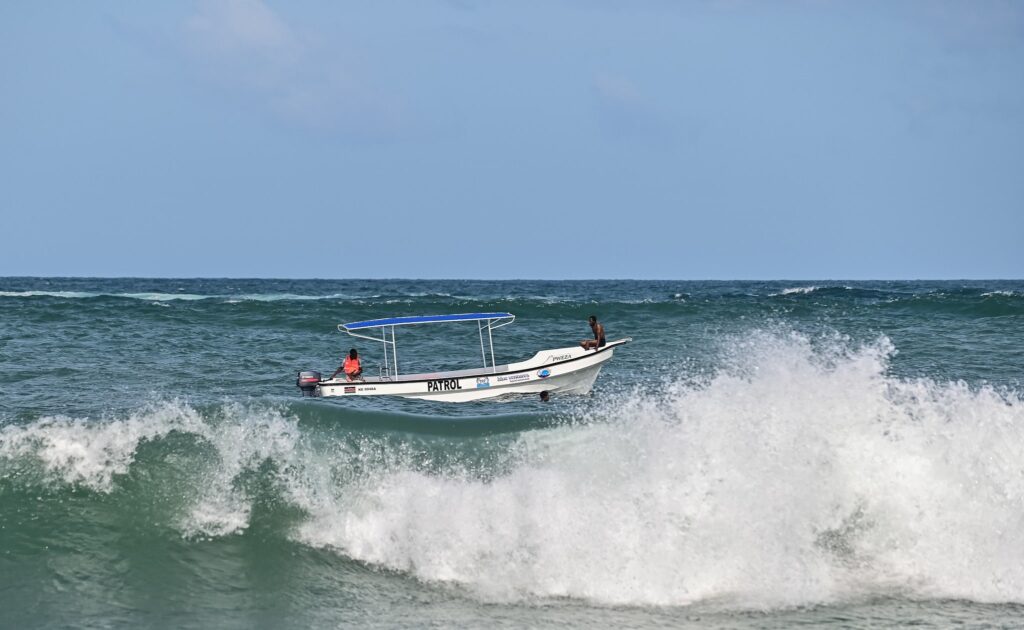
Some rangers on the boat during the launch at the Munje octopus closure area.Photo by COMRED.
To make ends meet, Bakari joined the Munje BMU, where he soon found a new opportunity.
The octopus closure opened doors for him and other young people, offering jobs as security guards (rangers) to protect the area. “I was fortunate to get the job when it was advertised,” Bakari said.
Today, he is one of 14 guards who patrol the closure, which is typically closed for three months at a time. When not on duty, he continues to fish to supplement his income.
Alphone Abbas, who also hails from Munje, is a fellow BMU member and heads the security team. He shares a similar story.
Before the pandemic, Abbas was an artist who performed skits with his peers while doing fishing as a side hustle. But the restrictions imposed to curb the spread of the corona virus made it impossible for them to meet and perform.
“Apart from fishing, I’m an artist. I create skits with other youths, but during COVID, it was difficult for us to gather and come up with plays that we usually perform to earn a living,” Abbas explained.
With his artistic career on hold, Abbas turned to the ocean for solace. “Munje BMU opened up opportunities for security guards, and I went for the interviews. I was actually the last person to appear,” he recalled.
Fortunately, Abbas secured the job and now heads the security team of 14 guards responsible for the octopus closure.
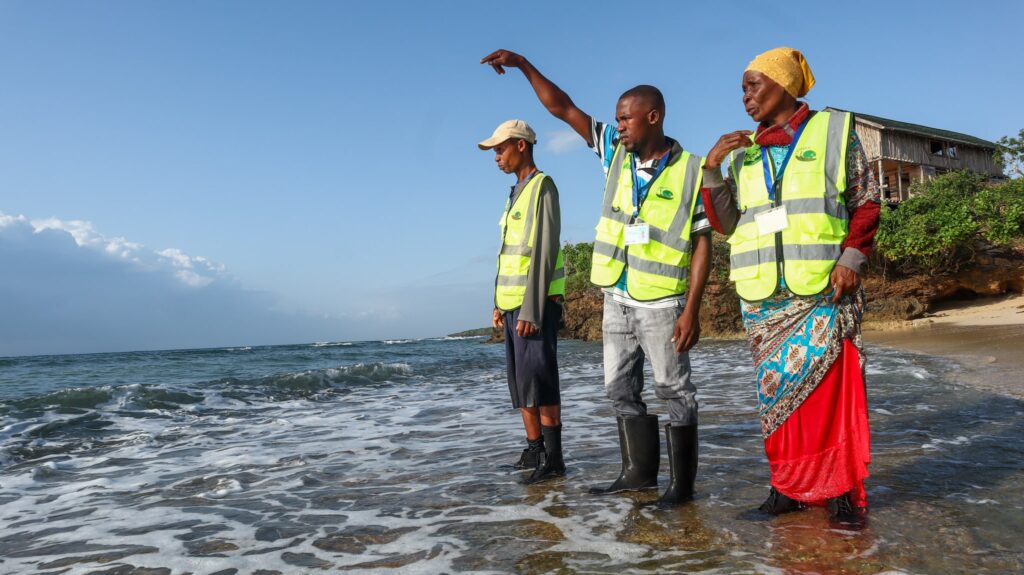
Alphone Abbas, the head of security at Munje Octopus Closure, standing at the center with two rangers by his side.Photo by COMRED.
Abbas and his team face numerous challenges in their line of work, the most significant being the lack of speedboats to apprehend fishermen who encroach on the protected area. However, the launch of the new speedboat, funded by the Coastal and Marine Resource Development (COMRED)—an organization that works with coastal communities to address environmental and socio-economic challenges—has brought renewed hope.
“I am very happy for us receiving this boat as will help us execute our work effectively. At first, we were helpless because some perpetrators who come here have speedboats, and by the time we spot them and try to follow, they are already gone,” Abbas said with a smile. “But with this, it will be easy for us to catch up with them.”
As for Bakari, despite life returning to normalcy, he has no intention of returning to Kilifi County to continue his fishing career. The opportunities and stability provided by the Munje BMU and the octopus closure have given him and others like him a reason to stay and build a future in Munje.
Munje Rangers Campaign Objectives:
The Munje Rangers Campaign aims to raise awareness and funds to support the 14-member Munje patrol team, who play a critical role in managing the Munje octopus closure.
This initiative promotes sustainable fishing practices, benefiting both the local community and the environment. The campaign also seeks to highlight the challenges these volunteers face, including working around the clock without pay. The lack of protective gear and essential equipment, and to celebrate their successes in promoting gender inclusion and engaging youth in conservation efforts.
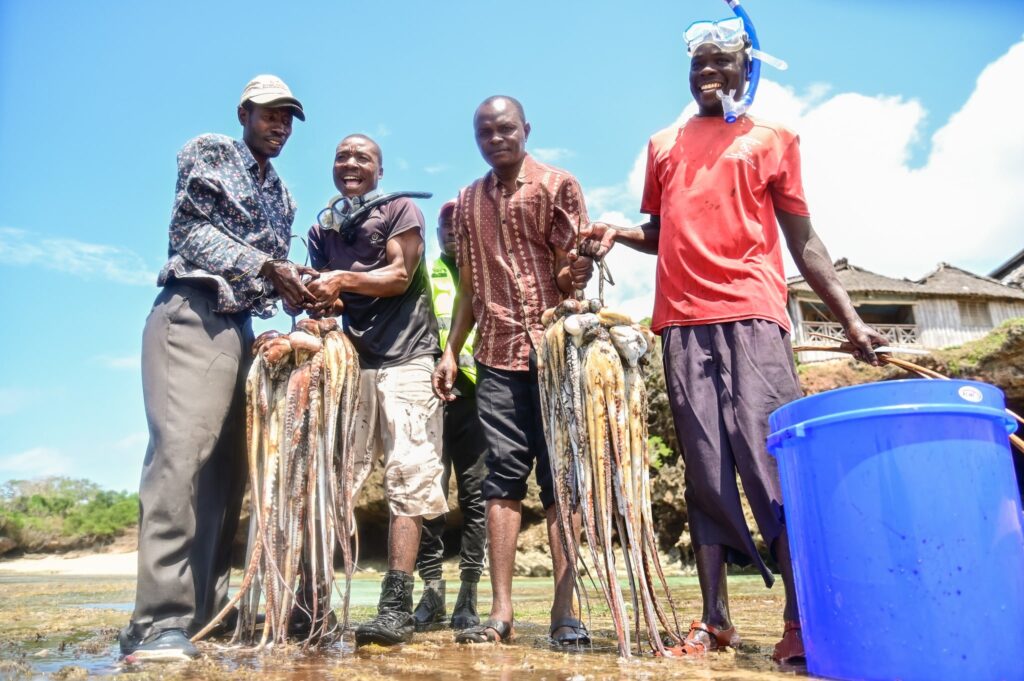
Some Munje BMU members showcasing their octopus harvest. Photo by COMRED.
Munje Octopus Closure Yields Ecological and Economic Benefits, Dr. Patrick Kimani Says
The Munje octopus closure is proving to be a powerful tool not just for ecological preservation, but also for economic growth within the coastal community. Dr. Patrick Kimani, one of the founding directors of the Coastal and Marine Resource Development (COMRED), has been at the forefront of this initiative. With a Ph.D. in fisheries and over 20 years of experience in coastal and marine resource management, Dr. Kimani is passionate about sustainable fisheries and the potential they hold for community development.
“The closure has significant ecological and economic impacts,” he explained. “It allows fish and other marine creatures to breed uninterrupted, leading to a spillover effect where fishers outside the enclosure can increase their catch. When fishers catch more, they earn more money, which directly benefits the community.”
Beyond the immediate economic gains, the closure also strengthens other marine ecosystems. “Corals and seagrass become more resilient, and since all sea creatures are interrelated, the overall productivity of the ocean improves,” said Dr. Kimani.
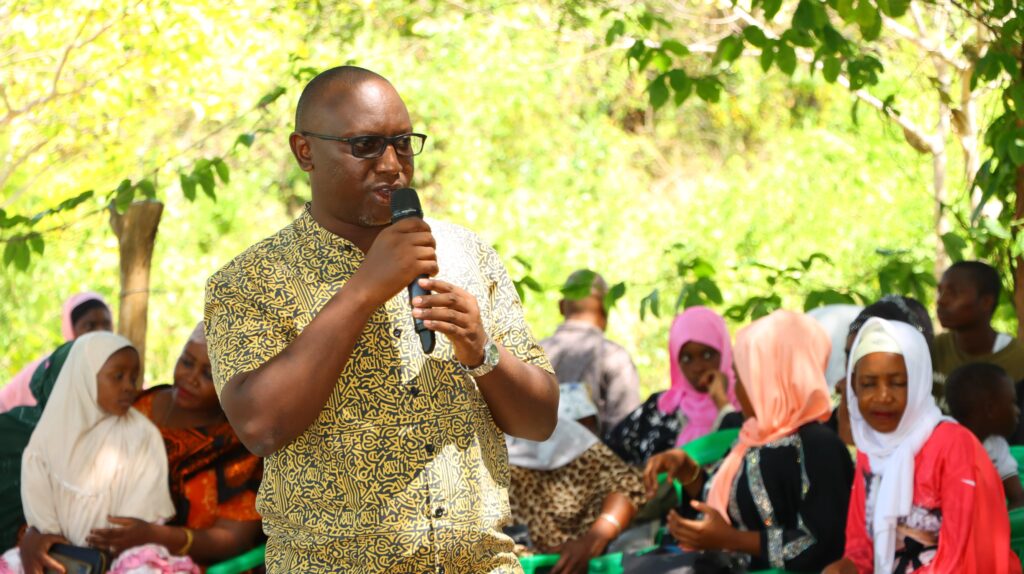
Dr. Patrick Kimani, founding director COMRED, speaking at the octopus closure opening ceremony in Munje. Photo Mazera Ndurya.
The positive outcomes of the closure are already visible. The Munje site has started attracting tourists for snorkeling and students for research, providing an additional revenue stream for the local community. In February 2024, the Munje area hosted 45 students and lecturers from Belgium and the Technical University of Mombasa, who came to study the community’s management practices. The visit brought in over Ksh 100,000 for the Munje Beach Management Unit (BMU).
The octopus harvests have also been impressive. In October 2023, the BMU harvested 649.324 kilograms of octopus. The catch was sold to fish dealers, earning the BMU a total of Ksh 198,049.31. Subsequent openings have continued to yield substantial catches: 268.115 kilograms in April 2024, earning Ksh 46,600, and 307.595 kilograms in August 2024, generating Ksh 112,272.175.
“The Munje closure is opened every three months, providing consistent and substantial harvests for the fishers. The income generated is shared among the members, with some of the funds reinvested into the group for various community projects,” Dr. Kimani noted.
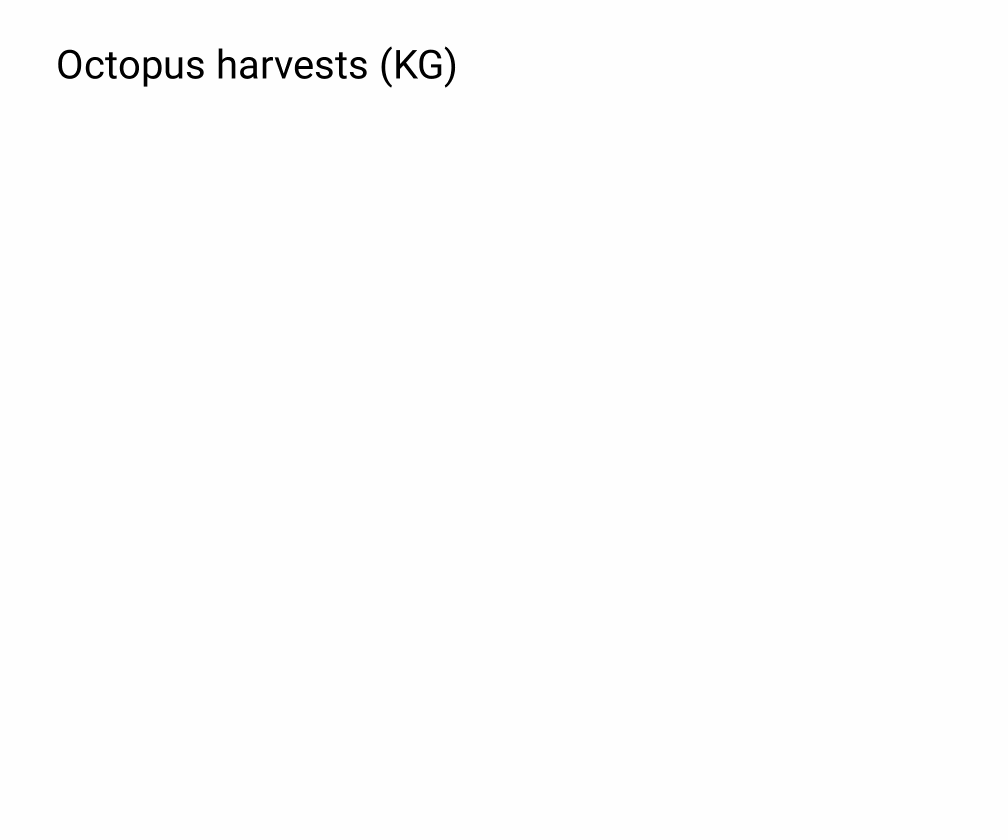
Dr. Kimani also highlighted how the octopus closure created job opportunities for youth during the COVID-19 pandemic.
“During COVID, many young people were struggling without income. The octopus closure needed protection, so we saw this as an opportunity to employ the youth. This not only provided them with financial support but also encouraged them to participate in the conservation efforts,” he said.
The recent launch of a modern patrol boat marks another milestone for the Munje BMU. The boat, valued at over Ksh 2.8 million, will greatly enhance the patrol team’s ability to safeguard the closure.
“This new boat will provide crucial support to the 14 young patrol members, making their work more efficient and safe. It will play a significant role in maintaining security within the closure and the surrounding marine areas,” Dr. Kimani concluded.
